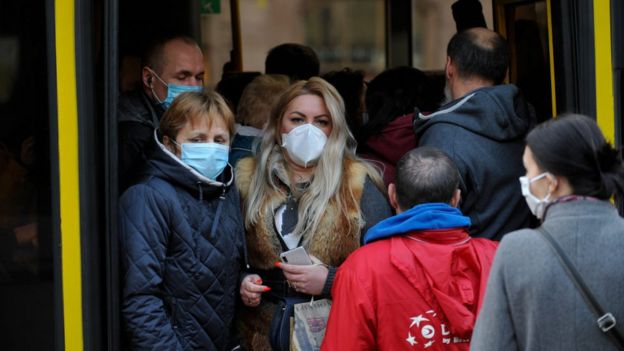
As the Corona virus epidemic spreads, so does the fear of our surfaces, such as tables or doors. Many scenes have now become commonplace in public places, such as people trying to open doors with their elbows, not holding a handle while traveling on a train, and employees clearing their desks every day in offices. Authorities are spraying pesticides on buildings, parks and streets in areas where Corona has had a major impact. Sanitation measures have been stepped up in hospitals, offices and shops. In some cities, some volunteers go at night to clean the keypads of ATMs. Like many respiratory viruses, corona virus is spread by tiny droplets that come out of a coughing person's mouth and nose. A single cough can have up to 3,000 such drops. The particles in the drops fall on a surface, or on someone's clothes, and some remain in the air. There is also evidence that the virus is present in human excretions, so people who do not wash their hands properly after using the toilet can damage anything they touch. In the United States, the CDC says that touching a place where the virus is present and then putting the same hand on your face is not the main way to spread the virus. Nevertheless, the CDC and the World Health Organization (WHO) say hand washing and surface cleansing are the most important steps in preventing the spread of the virus. Although we do not yet know how many cases have been caused by surface contact, experts say caution should be exercised. It is not yet clear how long the virus survives outside the human body. Past research has shown that similar viruses can live on metal, glass, or plastic for up to nine days if not properly cleaned.
At low temperatures, some can survive for up to 28 days. Corona viruses are said to have the ability to survive on many types of surfaces. And researchers are beginning to understand how these viruses spread. Nilje van Durmaln, a virus specialist at the National Institutes of Health (NIH) in the United States, is one of the few people to test for the virus on various surfaces. Their research shows that the virus can stay in the air for up to three hours after coughing. Cough drops of one to five micrometers can stay in the air for several hours. This size is 30 times smaller than human hair. In other words, in an unfiltered AC system, it can only stay for a few hours at most, because where the wind is blowing, these drops quickly settle on the surfaces. However, NIH research has shown that the virus survives on cardboard for a longer period of time, up to 24 hours, and can live for two to three days on any surface of plastic and steel. That is, it will last longer on door handles, tables, and other plastic coated surfaces. But researchers have found that it dies in four hours on copper surfaces. Research has also shown that if a surface is cleaned with a solution containing 62 to 71% alcohol or 0.5% hydrogen oxide or household bleach, the corona viruses are eliminated within a minute.
Even at high temperatures and high humidity, corona viruses die quickly. Researchers believe that corona viruses like this die in temperatures above 56 degrees Celsius, but it is so hot that bathing in water at this temperature can damage human skin. Research has not yet shown how long the virus stays in clothing or similar surfaces that are difficult to disinfect. Vincent Munster of Rocky Mountain Labs says: "We think that at any level where it can be absorbed, like clothes, it dries more quickly but sticks to them. Temperature and humidity ratios also play a role in how long the virus can survive outside the human body. "Right now we're doing more research on these two elements to see what effect they have on the virus," says Vincent Munster. They say the virus's ability to survive outside the human body for so long shows the importance of hand washing and cleaning surfaces.















0 Comments